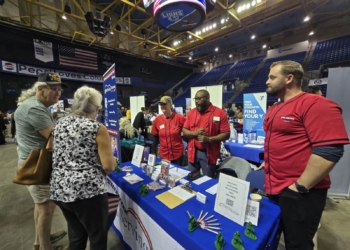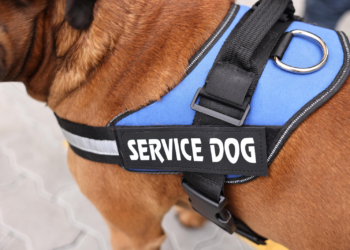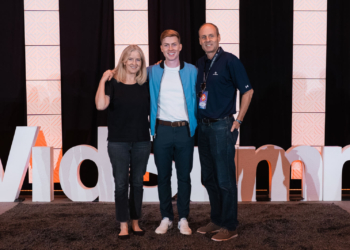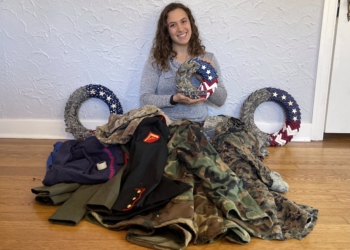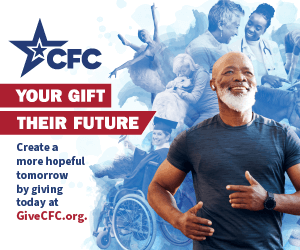A motorcycle tip-over in 2021 turned into the tipping point for Shannon Crawford, a former petty officer second class.
The six-year Navy veteran had been driving his bike “blackout drunk” when he sped into a red light too quickly. Though Crawford doesn’t remember details, he came down hard. Witnesses came to his aid and took away his keys.
“I knew at that moment I was going to be in a lot of trouble and had to make a serious change,” said Crawford, who was charged with a DUI. “There was no way I could continue to drink and think I was going to be able to control my life going forward.”
Crawford tried an addiction support group through the VA, but their 90-minute, once-a-week online format didn’t work for him. He needed something more intensive and personal.
That’s when he found Jay Wylie and the Veterans Navigation Center (VNC), a San Diego-area nonprofit billing itself as a one-stop shop for former service members transitioning into civilian life. One program offering is treatment for substance use, including three-hour, in-person meetings most days of the week with trained counselors and support groups.
“Jay was very kind and made me feel there was a place I could come meet with others in similar situations,” said Crawford, now three years sober. “There was always a safe place to go and people to talk to, and that was integral for my success.”
Wylie, a former Navy commander of the USS Momsen, knows exactly what Crawford is talking about — because he walked the same road.

Wylie left the Navy by force more than a decade ago in “a very public and painful fashion,” he said, propelled by his alcoholism. A driving need for perfection coupled with a fear of failure often ended in liquored-up blackouts to numb feelings of shame and remorse.
“When my sailors found out I like to drink, I never had an empty hand,” Wylie said. “But sooner or later, the wheels are going to come off the bus, and they did.”
Wylie was relieved of command after drunkenly behaving inappropriately toward female crewmembers. After completing the Navy’s outpatient substance abuse program, he became heavily involved in addiction recovery communities, eventually becoming a certified substance abuse counselor and linking with VNC founder Scott Silverman. In 2019, the pair became officially connected with the VA’s Alcohol & Drug Treatment program, now serving up to 40 veterans a week.
Many are female veterans, whose most recent yearly suicide rate rose 24.1%, according to the latest VA report. The VNC has support groups solely for them, unpacking common veteran- and women-specific issues playing a hand in addiction.
“Now when a female veteran comes to the VA, we can tell them there’s a group here specializing in helping female veterans, where you can feel safe, where you don’t have to be alone,” said Wylie. “Providing that safe space and trying to get the message out across all San Diego is absolutely what we’re doing to try to reduce veteran suicide, but in particular, female veteran suicide.”
It isn’t just substance abuse that the VNC helps with. They also connect veterans with resources in the areas of housing, legal issues, acquiring benefits, employment and life skills training and mental health or family/marriage counseling. But no matter what problem a veteran brings to Wylie, he feels uniquely equipped to assist a fellow brother or sister in uniform.
“It’s given me a new purpose,” he said. “Now I’m able to share the most painful experience of my life and say, ‘These are the mistakes I made, this is what I did about it — and you can, too.’”



















